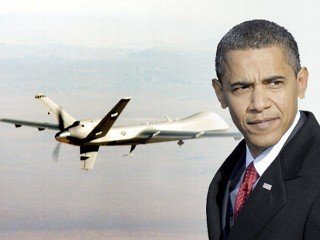May 24, 2013
Dallas, Texas, USA
Years ago as a young intelligence officer, I served a stint in Saudi Arabia running a team of counter-terrorism analysts and agents.
We used to have regular “threat working groups,” a fancy way of saying we would get together at the US Embassy for meetings with the embassy staff, local NSA operators, and CIA operatives working in the country under official cover.
The tone of the meetings was always the same– looking at various reports and figuring out which intelligence was credible.
It seemed like every week we would hear about some terrorist with a suitcase-sized bomb, and the bureaucrats would dive into a lively debate about whether or not to evacuate the Americans.
One day, I remember, my friend who was the senior ranking non-commissioned officer interrupted and said, “What about the Swedes?”
Silence. You could have heard a pin drop.
An embassy official looked at him, puzzled. “Sergeant?”
“What about the Swedes? Do we evacuate the Swedes too?”
The embassy staff looked at each other, shrugged a bit, “Oh sure, sure, we’ll coordinate with Washington on that.” And the discussion continued.
“What about the Saudis?”
Silence again. And then he really made his point. “It’s not just about Americans, you know. Their blood is worth something too.”
I’ll never forget it. It was formative for me. But for the government bureaucrats, it was as if he were speaking Greek. They just didn’t understand the concept.
It’s so commonplace… and one of the more unfortunate aspects of humanity. We group ourselves, defining each other by irrelevant things like nationality or the color of our passports.
The modern nation state has only served to reinforce this purpose. The flag waving and bombastic patriotism drive a sentiment that other peoples are less important– that their lives are worth less than our lives… as if we’re not all human beings.
To give you a harsh example, former British Prime Minister David Lloyd George was a vocal opponent of Geneva Convention restrictions to prevent British planes from bombing certain civilian targets.
He had a long history of this, having dropped 97 tonnes of bombs and fired 183,861 rounds on Iraqi civilians in a 1920 revolt against British occupation.
According to his wife in later memoirs, George opposed any such restrictions because he wanted to “reserve the right. . . to bomb niggers!”
Though such language is intellectually appalling today, very little has changed in this sentiment: our lives are worth more than other people’s.
President Obama really drove this point home in a speech yesterday which passionately defended US drone strikes– something the White House calls “necessary, legal, and just.”
Now, it’s possible that I’ve seen a more intellectually disingenuous speech in my life. But I really can’t remember when.
As the President stated, the drone strikes are “effective” and have “saved lives.”
So says the Nobel Peace Prize recipient. But I imagine there are a number of dead civilians who would take issue with his assertion if they could.
By “saved lives,” he obviously meant “American lives”. Of course, we’ll never know since they don’t release any information and we’re all just supposed to take the government’s word without question.
I don’t. Having once been inside the machine, I know that there is zero certainty in the intelligence business… which makes the whole calculus morally reprehensible.
My dictionary defines the word sociopath as “a person with a personality disorder manifesting itself in extreme antisocial attitudes and behavior and a lack of conscience.”
I think the shoe fits. At a minimum, this policy… this strategy… is sociopathic. It demonstrates a lack of conscience for the value of innocent life overseas and is another massive moral stain on the politicians who lord over the Land of the Free.








